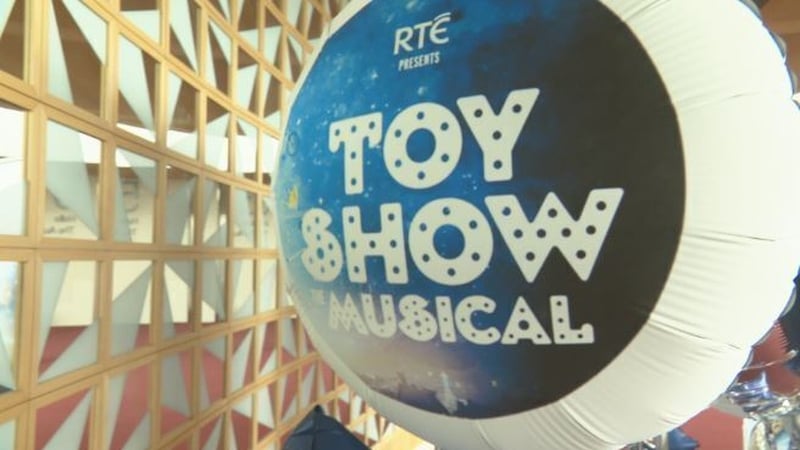The staging by RTÉ's commercial arm of Toy Show The Musical was last year the main factor behind the firm sustaining a €1.089m hit in profits.
New accounts for RTÉ Commercial Enterprises DAC show that the company's pre-tax profit slumped by 16.4% from €6.6m to €5.53m despite a €1.75m or 11% increase in revenues from €14.87m to €16.62m.
The firm's profits reduced after operating costs surged by 30% or €2.6m rising from €8.78m to €11.41m and the directors state that "the main reason for the substantial year on year increase are the costs incurred on the production of Toy Show, The Musical".
In their report, the directors state that as part of RTÉ’s strategy to develop live ticketed events, Toy Show, The Musical was staged in December.
They state: "While this show received favourable reviews, ticket sales were below expectations, not helped by the fact that a number of shows had to be cancelled due to illness amongst the cast."
Documents released by RTÉ's over the Summer revealed that Toy Show The Musical recorded revenues of €495,961 against costs of €2.69m resulting in a loss of €2.2m.
RTÉ sold just 11,044 tickets across 27 performance as half of the shows ended up being cancelled with cancellations forcing refunds worth €251,000.
The RTÉ executive in charge of the project, Director of Strategy Rory Coveney resigned from his post in July.
The station's recently departed Chief Financial Officer, Richard Collins, was a director of RTÉ's Commercial Enterprises DAC for the duration of 2022 and documentation lodged with the Companies Office shows that Mr Collins resigned as a director of RTÉ's Commercial Enterprises DAC on October 11 as the crisis engulfing the station continued.
The directors for RTÉ Commercial Enterprises state that despite the general business uncertainty resulting from the war in Ukraine and a highly inflationary environment RTÉ Commercial Enterprises recorded a post tax profit of €5.47m.
The directors state that the performance of Programme Interaction Competitions (PIC) and the RTÉ's Guide remained adversely affected post Covid.
The directors state that PIC revenues "experienced another challenging year and revenue declined 25% year on year as the level of audience engagement with TV competitions has not returned to pre-Covid levels".
On the performance of the RTÉ Guide, the directors state that the magazine also experienced a challenging year in circulation terms and was 10% down year on year in line with a magazine market that is estimated to have declined by 10%.
They state that total copy sales of 1.66 million for the year included a 9% decline in sales of the flagship Christmas issue which sold 240,600 copies.
They state that advertising revenue also declined year on year as the magazine advertising market proved challenging.
The directors state that there were increases in other revenue lines such as radio promotions, in renewed distribution deals concluded in respect of RTÉ Player Licensing and from incremental live events.
The accounts disclose that RTÉ Commercial Enterprises DAC received a €323,000 share of profit from its GAA Go joint venture with the GAA last year.
RTÉ Commercial Enterprises DAC recorded a profit of €5.52m from continuing operations and the €323,000 profit from GAA Go resulted in a pre-tax profit of €5.53m.
The commercial arm also oversees the licensing of the RTÉ Player under commercial contracts to other media organisations and the sale of TV programming and programme.
The pay to contractors by the firm last year increased more than six fold from €95,000 to €638,000 while other operating costs increased from €1.86m to €2.77m.
Numbers employed totalled 27 in commercial/merchandising and editorial and content production roles and staff costs recharged to the group totalled €2.74m.
At the end of December last, the company’s accumulated profits totalled €113.66m.
Reporting by Gordon Deegan
